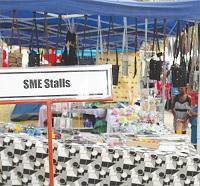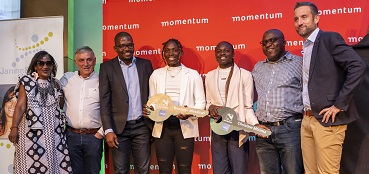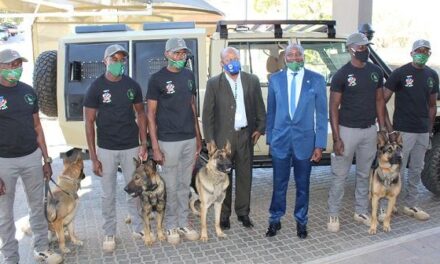
Eco- entrepreneurship on youth agenda

The potential value of so-called green business was the focus of a training programme held earlier this month for young entrepreneurs who feel they have the skill and commitment, but who lacks business knowledge. Referred to as Jump-Starter sessions, the training helps young people bridge the gap between idea and reality. The testimony from several case studies were offered to demonstrate the potential that can be unlocked by green enterprises.
The Namibia Business Innovation Institute, the Namibia University of Science and Technology and the Hanns Seidel Foundation Namibia co-hosted the two-part training series under the label The Eco-Entrepreneur Jump-Starter Series. Held at the Gateway Centre and the premises of the Namibia Institute of Public Administration and Management, the sessions promoted eco-entrepreneurship as a means of self-employment, employment by micro-enterprises, and as a poverty eradication catalyst.
The organizers explained that the first event in the 2-part series focused on exposing the audience to cases of eco-entrepreneurship from Kenya, Ghana and Uganda that are developing environmentally friendly projects to help themselves and their communities. They also said that the second part of the series focused on analysing the progress and potential of six local eco-enterprises, looking at their products. their motivation, market opportunities and the challenges they face.
Elephant Energy which is a non-profit organization that aims to reduce energy poverty particularly in Namibia’s informal settlements and rural, off-grid communities in the northern and central parts of the country. They provide training to micro-entrepreneurs for solar-powered lights, cellphone chargers and solar or crank-powered radios and provide education on the significance and benefits of solar energy.
Greenvile Solutions (GVS) are currently creating awareness on solar energy while highlighting the dangers of using other sources of lighting such as candles, paraffin and wood especially in informal settlements where shack-fires and health problems are rife from the use of these forms of energy. GVS also imports and sells multi-functional solar lights which are ideal for rural or of-grid communities and outdoor camping.
Mathews and Orlale (M&O) are eco-entrepreneurs who recycle waste into affordable products such as gift bags and décor products and aim to reduce wast by up-cycling items such as bottles and boxes.
Green Earth Creation (GEC) transforms waste into different useful products such as ottoman seats, dustbins, baskets, stationary holders and decorations. They aim to reduce, reuse and recycle waste as a contribution to wast management and to reduce environmental pollution.
Agricycle Namibia is in the nutrient recycling industry and they farm with insects Hermetia illucens (Black Soldier Fly) which converts organic waste into proteins that are useful in animal feeds.
Cuvelai Co-operative harvests invader bush and processes this into wood chips and saw-dust which are packed into large clear plastic bags used as a medium for growing mushrooms. The harvested bush is also used to make paper which is then used for packaging the mushrooms
These six eco-entrepreneur projects strive for business opportunities that are environmental friendly, promote waste management as well as improving the lives of communities by creating jobs and providing affordable, environmentally-friendly products.











































